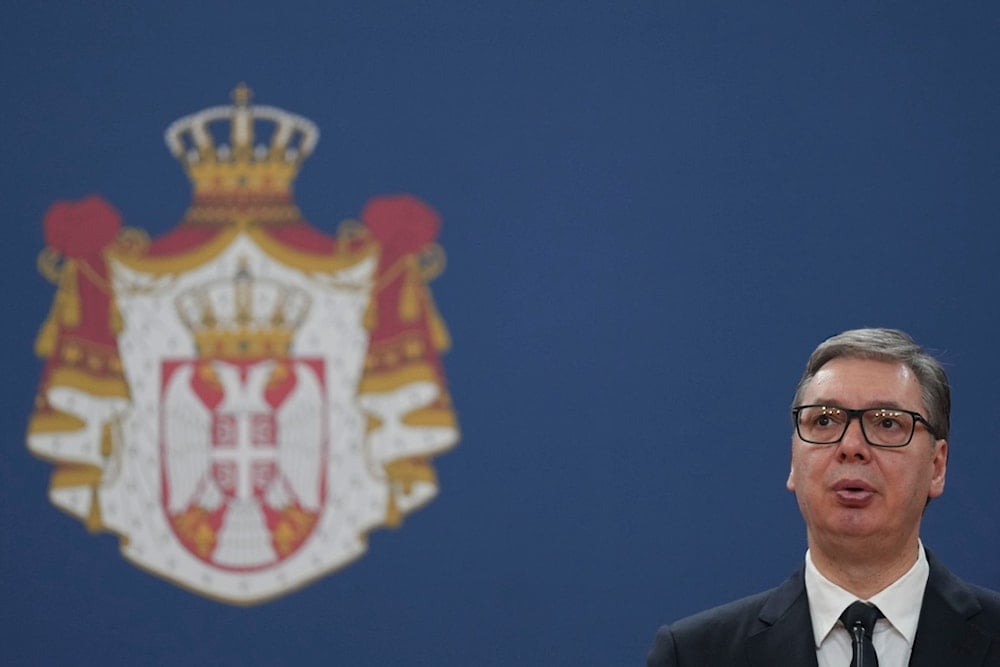Serbian President Vucic to attend Moscow's WWII commemoration
This will mark Vucic's first trip to Russia since the start of the Ukraine war, a move likely to raise eyebrows in Brussels as Serbia reaffirms its ties to Moscow.
-

Serbian President Aleksandar Vucic speaks during a press conference after talks with Kazakhstan President Kassym-Jomart Tokayev at the Serbia Palace, in Belgrade, Serbia, Tuesday, Nov. 19, 2024. (AP Photo/Darko Vojinovic)
Serbian President Aleksandar Vucic announced on Tuesday that he will visit Moscow in May to attend a World War II commemoration marking the 80th anniversary of liberation from fascism.
This will mark Vucic's first trip to Russia since the start of the Ukraine war, a move likely to raise eyebrows in Brussels as Serbia reaffirms its ties to Moscow.
In a public address, Vucic expressed his gratitude for the invitation extended by Russian President Vladimir Putin. "If the end of the world doesn't happen — though I'm no longer so sure, but I hope it won't — it would be a great honor for me to be at Red Square for the 80th anniversary of liberation from fascism," Vucic said.
He also confirmed that Slovak Prime Minister Robert Fico will attend the event.
Vucic's mention of the "end of the world" likely alludes to speculations raised by observers about the possibility of a nuclear war. Earlier in the day, Russia unveiled an updated nuclear doctrine as a retaliatory measure against Western powers authorizing Ukraine to use long-range missiles to strike inside Russia.
Observers suggest that the Biden administration gave the authorization with the intent of prolonging the conflict, ensuring it carries over into the Trump administration, despite Trump's stated plan to end the Ukraine war within 24 hours of taking office. The Kremlin, however, has downplayed such promises, expressing skepticism about Trump's ability to swiftly resolve the conflict.
EU Bid and Russian Ties
Serbia has been a candidate for EU membership since 2012, with officials frequently stating that joining the EU remains the country's strategic priority. However, Serbia maintains close political and economic ties with Russia, relying heavily on Russian gas. The current gas agreement with Russia is set to expire in March, with negotiations for a new deal already underway.
Brussels has repeatedly expressed concern over Belgrade's ties with Moscow, urging Serbia to align its foreign and security policy with EU standards. Tensions flared recently when European Commission President Ursula von der Leyen canceled a meeting with Serbian Prime Minister Milos Vucevic due to his earlier discussions with a Russian minister.
Read more: Vucic tells NATO that Serbia will remain military neutral territory
Serbia maintains complex relations with the West, particularly NATO, shaped by a combination of historical grievances, geopolitical dynamics, and strategic pragmatism. The NATO intervention during the Kosovo War left a deep scar on Serbia's collective memory.
NATO forces conducted a 78-day bombing campaign against the Federal Republic of Yugoslavia (comprising Serbia and Montenegro) without UN Security Council approval. This action caused civilian casualties and widespread destruction, fostering long-standing resentment among many Serbians.

 3 Min Read
3 Min Read








